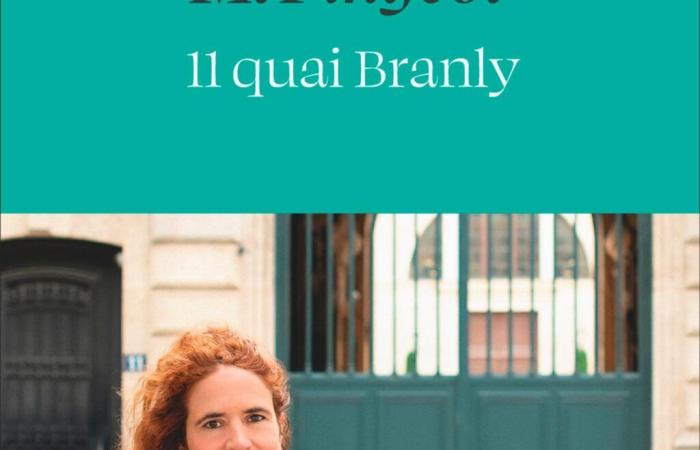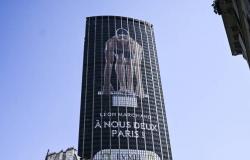Book. In the beginning, a collection. Imagined by two editors, Stéphanie Kalfon and Amélie Cordonnier, “Retour chez soi” invites writers to return to a place they have left for a long time, which they would find for a night and a day. Mazarine Pingeot returned to 11 Quai Branlyin the 7th arrondissement of Paris, a dependency of the Elysée where the daughter of François Mitterrand settled with her mother, Anne, after the election of her father in 1981, from the age of 9 to 16.
Rather than Gordes (Vaucluse), where her parents had a house, Auvergne, where her mother came from, Landes or Nièvre, the philosophy professor and novelist chose “The Apple”and “transient accommodation where no one passed”at the same time « décor » et “tomb” of a hidden, secret adolescence. Location of his “disappearance” (in the eyes of the world), it is also that of “reunion”often happy, because in this large apartment, whose wallpaper she hates, all three of them finally live, “playing as if nothing had happened”.
Read also | Article reserved for our subscribers François Mitterrand, Anne and Mazarine Pingeot, in the shade of the lime trees
Read later
His father has been dead thirty years. “Mazarine” is 50 years old. For this perilous literary project, she obtained authorization from the Elysée; the occupant of the apartment agreed to leave him the keys. “I’m afraid to go back”she said straight away. She arrived there one day in February, immediately found “the pale light of childhood”. The old beige carpet is no more, his father’s Le Corbusier lounge chair has disappeared. She sees herself in the hall, playing rubber band, can still smell the toast in the kitchen which has been renovated, losing its “old-fashioned charm”. It’s all there “more chic, newer”she notes. The memory, painfully, awakens. “But for what? »asks Mazarine Pingeot.
“Opening up childhood”
To make this address cursed “similar to others”maybe. For “open up childhood” : by confronting it, free yourself from its influence. For “bringing into existence what has been deprived of all view”. When, at the end of the experience, the author closes the door to the apartment, she understands that she had never left. “It is not given to everyone to start saying goodbye again when they were missed the first time. I can now leave the premises without fleeing them. » Then : “Do I exist now?” »
Read also | Article reserved for our subscribers An aperitif with Mazarine Pingeot: “Some still only see me as my father’s daughter”
Read later
Around this “house of ghosts” revisited, there are games of mirrors between reality and literature, public history and private destiny, a difficulty in accepting that this story, one’s own, is also a little bit ours. “This apartment exists in books written by others”says the one who fears stares, while feeding them: by definition, she writes to be read. “Being a prisoner of a public image and constantly fighting against it while relying on it was a family affair”she admits.
You have 11.59% of this article left to read. The rest is reserved for subscribers.






